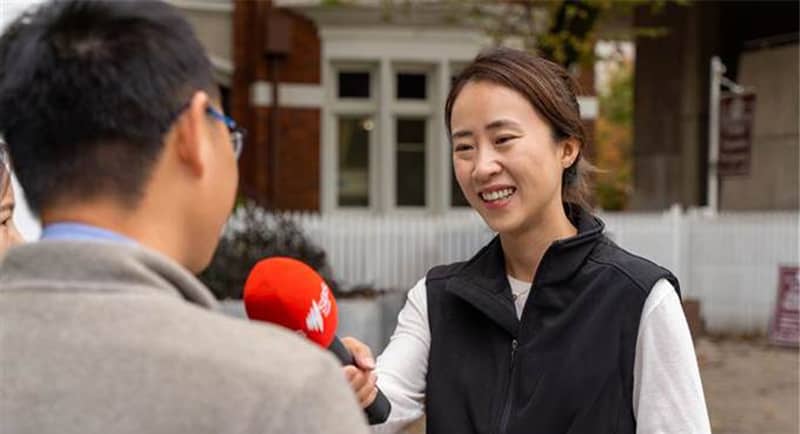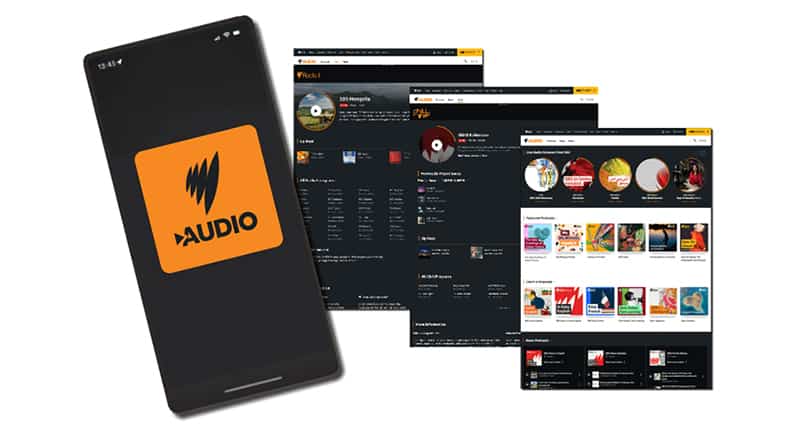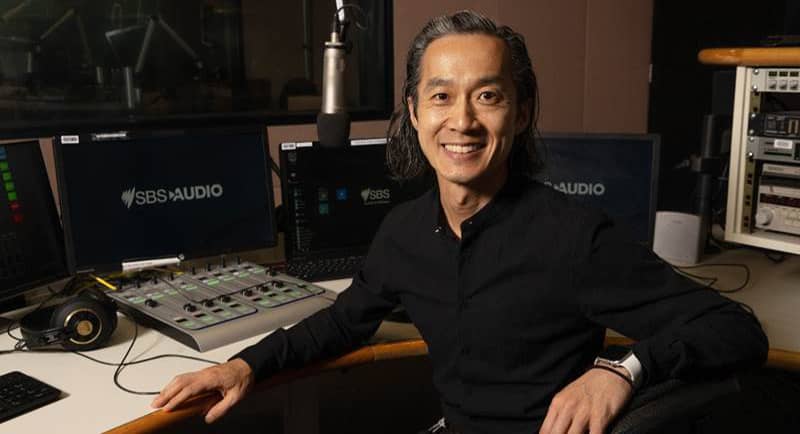This month, SBS flipped the switch and went live with a rebrand of its audio offering for multilingual audiences, officially transitioning from SBS Radio to SBS Audio.
Coinciding with the SBS Audio launch is key changes to SBS’s audio language services – with the introduction of Bislama, Malay, Oromo, and Tetum programming. SBS has also recommitted to servicing Telugu and growing its Punjabi and Nepali teams, as well as commissioning content in Indigenous languages to aid language preservation, and investing in Auslan accessible content.
With so much change happening, Mediaweek spoke to SBS director of audio and language content, David Hua, about the launch and what it means for both listeners and brands.
The language expansion comes as a part of SBS’s five-yearly update to its audio content offering, a process which Hua describes as “very, very thorough in terms of looking deeply at census data, applying our selection criteria, determining which languages we serve, and how we go about serving our audiences.”
When asked what the goals of the language expansion are, Hua says that they shift alongside what the audience needs at any given time.
“Our mission at SBS is to provide services for multicultural and multilingual Australians. Those goals change – we’re evolving as a society, and we absolutely want to provide our audiences with a sense of belonging to help build social cohesion. The community is evolving, Mandarin and Arabic speakers are growing in numbers, people from South Asia are growing in numbers, and there are changes to the profile of need amongst the community.
“We want the services to be fair, essentially. So we’ve gone through the rigorous task of going through a lot of statistics from the census and going through research to try and shape the language and the outputs that we actually have.”

Mo Lin, SBS Mandarin Producer, interviews a member of the community in Launceston, TAS
As part of the holistic SBS Audio offering, it’s not just radio that the station offers to audiences.
“Over the last 18 months or so, we’ve had a lot of success with our podcasts,” says Hua. “We do a call out every year to the public to make submissions to us, so that we can provide collaborative opportunities to create content together. Every year we receive pitches from every state and territory across Australia.
“I’m really proud of the fact that last year SBS was the Publisher of the Year at the Australian Podcast Awards, and the diversity of the offer right across the organisation.”
For brands and advertisers, Hua highlights the opportunity to be a founding part of people’s experience as they make the move to Australia, no matter how big their community may be.
“SBS’s audiences are not niche, they’re not small – there are 5.6 million speakers of languages other than English in Australia and we serve 92% of those speakers through SBS language services. We’ve got a language footprint that is beyond that of the BBC World Service and beyond that of other broadcasters.
“I’m actually really, really proud of the fact that not only are there great opportunities to engage with large communities, but also the smaller emerging ones. There are opportunities to really embed brands in the minds of new migrants coming into this country, and then be a part of their life as they settle and grow and succeed in Australia.”
All of these changes, and the launch of SBS Audio, help set the stage for SBS’s 50th birthday in two years’ time.
“Where we’re going and where we’ve been is such a fascinating journey. When SBS was originally commissioned, it was such a delight for audiences to hear voices and languages that were familiar to them on the radio. That gave them a sense of belonging in their new home in Australia.
“What our services seek to do, going into the future with increased competition across the board, is to maintain that deep relationship of having a trusted voice in the ear, providing people with information, entertainment, and education. That is going to put them in a very, very good position to succeed in Australia, whatever that might mean.”

Overall, Hua and the team are proud of the services they offer and what they mean to Australians from all walks of life.
“Whether they’re using our services directly as a Tamil speaker, as a Greek speaker, or as an Amharic speaker – or one of the new languages that we seek to commission – we hope that the community and the media more broadly value the service that we offer to a significant part of the community.”
–
Top Image: David Hua
